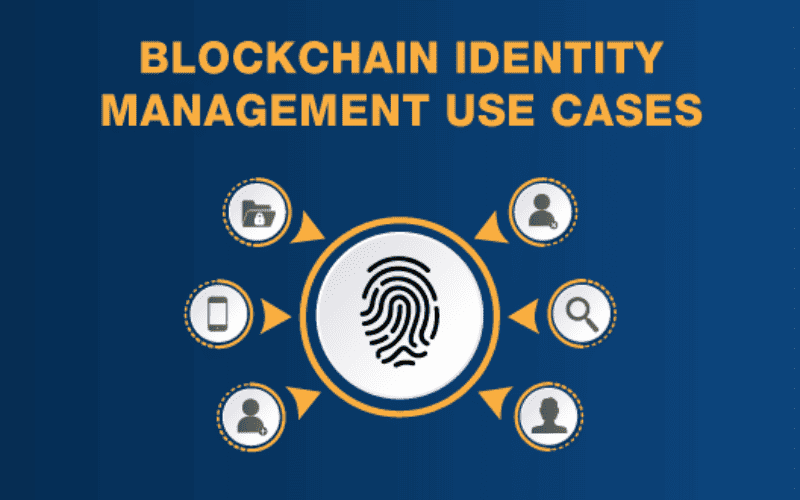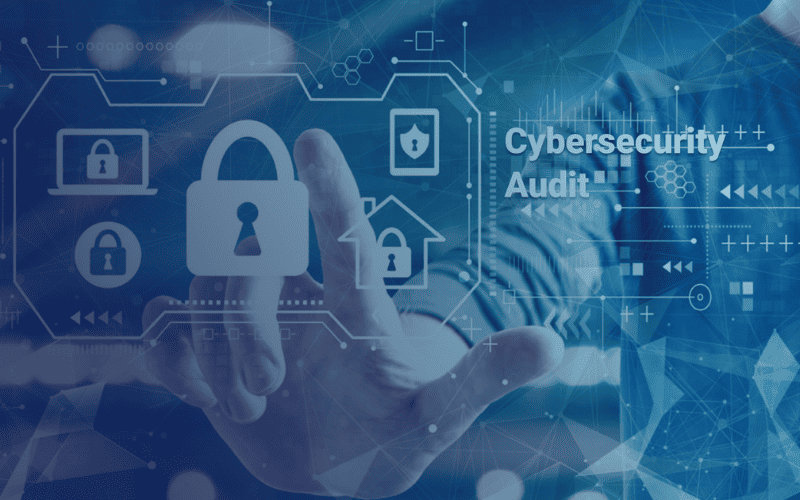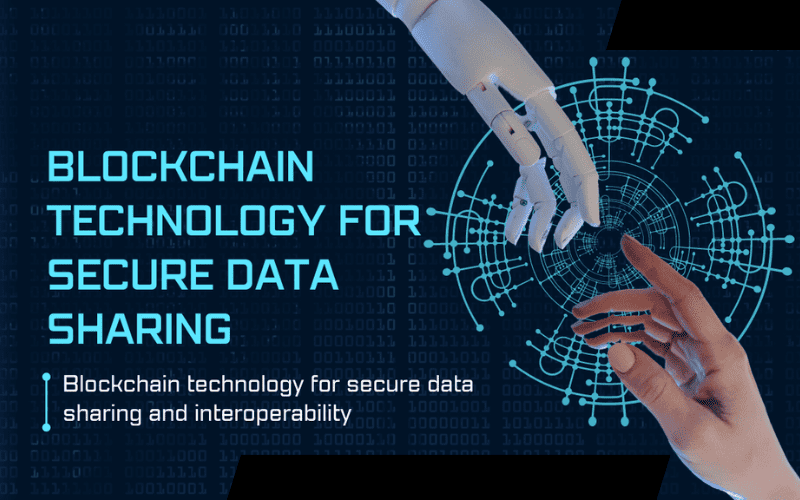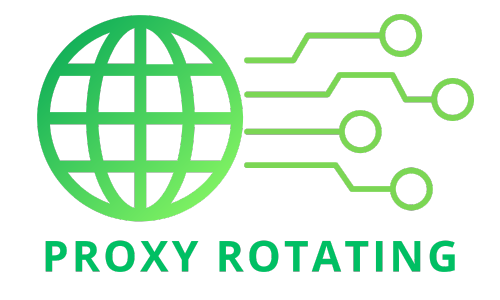Blockchain technology has emerged as a transformative force in today’s digital landscape, offering unparalleled security and transparency in various industries. Understanding blockchain security use cases is paramount in harnessing the full potential of this innovative technology. By delving into these blockchain security use cases, we uncover the tangible benefits and solutions blockchain offers in safeguarding sensitive data, combating cyber threats, and ensuring the integrity of transactions.
Blockchain security use cases
Initially developed as the backbone for cryptocurrencies like Bitcoin, blockchain technology has evolved far beyond its roots, demonstrating significant potential across various sectors. Regarding network security, blockchain offers a novel approach to safeguarding digital transactions and communications against increasing cyber threats. Here are some use of blockchain security use cases:
Identity governance in a decentralized form
Blockchain enables a secure and user-controlled identity management system, reducing the risk of identity theft and fraud. By allowing individuals to control their identity data without relying on a central authority, blockchain minimizes the chances of massive data breaches familiar with centralized identity repositories.
Secure DNS and DDoS protection
Blockchain can decentralize DNS entries, distributing them across a network of nodes. This decentralization can mitigate the risk of DDoS attacks, which often target centralized DNS providers. By removing a single point of failure, blockchain enhances the resilience of the internet’s addressing system.
Strengthened Public Key Infrastructure (PKI)
Blockchain can significantly enhance the integrity and security of Public Key Infrastructure, which is crucial for secure digital communication. By storing public keys on a blockchain, the technology ensures an immutable, verifiable record of keys, thus preventing common attacks such as Man-in-the-Middle (MitM).

Enhanced IoT security
The Internet of Things (IoT) presents unique security challenges, often stemming from the centralized nature of data collection and processing. Blockchain can secure IoT networks by creating a tamper-proof ledger for all devices to record and validate transactions and data exchanges, thus preventing unauthorized access and tampering.
Immutable data backup
Blockchain can be a highly secure and immutable backup system for critical data. Unlike traditional backup services that are vulnerable to tampering and ransomware attacks, a blockchain-based system ensures that once data is recorded, it cannot be altered or deleted, providing a verifiable data history.
Transparent access control
Blockchain enables a transparent and immutable record of all access requests and responses within a network. This ensures that unauthorized access attempts are recorded and can’t be erased or altered. This transparency helps audit and monitor network access controls.
Secure Messaging
Blockchain technology can be used to develop secure messaging applications. In these applications, messages are encrypted and stored decentralized, making unauthorized access and surveillance exceedingly tricky.
Utilizing intelligent contracts for automated security
Smart contracts, self-executing contracts with the terms of the agreement directly written into lines of code, can automate various network security processes. Without human intervention, they can automatically update security policies, validate transactions, and even trigger responses to security incidents.

Blockchain for data security
Blockchain technology is revolutionizing data security by leveraging its core characteristics of decentralization, transparency, and immutability. These features make blockchain an excellent tool for securing sensitive information, protecting against unauthorized access, and ensuring data integrity across various industries. Here’s how blockchain contributes to enhancing data security:
Immutable ledger
One of the most significant benefits of blockchain is its ability to create an immutable ledger of transactions or data entries. Once data is recorded on a blockchain, it cannot be altered or deleted without the network’s consensus, making it nearly impossible for hackers to manipulate the information. This permanence ensures data integrity and builds trust among participants.
Decentralization
Blockchain operates on a decentralized network, distributing data across multiple nodes. This eliminates single points of failure, common in centralized systems, where data breaches can have catastrophic consequences. By spreading the data across a vast network, blockchain significantly reduces the risks of centralized attacks, making it more difficult for unauthorized parties to compromise the system.
Encryption and data privacy
Blockchain technology uses advanced cryptographic techniques to secure data. Each transaction or data block is encrypted and linked to the previous block, creating a secure chain. This cryptographic linking ensures the network quickly detects any data alteration attempt. Additionally, blockchain can support privacy-enhancing technologies like zero-knowledge proofs, allowing for the verification of transactions without revealing sensitive information.

Secure data sharing
In an era where data sharing and collaboration are essential, blockchain offers a secure platform for sharing information between parties. It enables secure peer-to-peer transactions without a trusted intermediary, ensuring data authenticity and integrity. This aspect is particularly beneficial for industries that require the exchange of sensitive data, such as healthcare, finance, and supply chain management.
Transparency and audibility
Blockchain’s transparent nature allows for real-time auditing of data and transactions. Each participant in the network has access to a copy of the ledger, ensuring transparency and enabling easy verification of data integrity. This auditability is crucial for regulatory compliance and building trust in systems where data accuracy and authenticity are paramount.
Smart contracts
Smart contracts are self-executing contracts with the terms of the agreement directly written into code. They can automatically enforce and execute the terms of agreements based on the data recorded on the blockchain. Smart contracts can be used to automate data access controls, ensuring that only authorized users can access specific pieces of data under predefined conditions, further enhancing data security.
Applications across industries
Blockchain’s data security applications are vast, ranging from protecting medical records in healthcare to ensuring the integrity of financial transactions in the banking sector. It also has the potential to secure intellectual property rights, validate the authenticity of educational certificates, and safeguard personal data in digital identities.

Utilizing Blockchain for Identity Administration
Managing identity with blockchain introduces a revolutionary approach to digital identity verification, privacy, and security. By leveraging blockchain’s inherent features like decentralization, immutability, and encryption, it offers a more secure, efficient, and user-controlled method of managing digital identities. This approach enhances privacy and security and significantly reduces the risks of identity theft and fraud. Here’s how blockchain is transforming identity management:
Decentralized identity systems
Blockchain enables decentralized identity (DID) systems where users can create and manage digital identities without relying on a central authority. This model shifts control back to the individual, allowing them to share only the necessary information with verifiers without exposing all their data. Such a system minimizes the risk of massive data breaches and identity theft prevalent in centralized identity management systems.
Immutable profile for verification
Every transaction or identity verification with blockchain is recorded on an immutable ledger. This ensures that once an identity attribute is verified and recorded, it cannot be altered or deleted without consensus. This immutable record provides a reliable and tamper-proof basis for identity verification, enhancing trust among all parties involved.
Self-Sovereign Identity (SSI)
Self-sovereign identity (SSI) is a concept in which individuals own and control their identity without the intervention of third parties. Blockchain is the critical technology enabling SSI, allowing users to manage and share their identity data through cryptographic proofs securely. This approach ensures that individuals have complete control over who accesses their information, for what purpose, and for how long, significantly enhancing privacy and security.

Strengthened Security Through Cryptography
Blockchain utilizes advanced cryptographic techniques to secure data. In the context of identity management, personal information and identity credentials are encrypted and can only be accessed by those granted permission. This cryptographic security layer protects against unauthorized access and identity fraud.
Cross-Platform Compatibility and Interoperability
Blockchain can facilitate interoperability among identity management systems, enabling users to use their digital identities seamlessly across multiple platforms and services. This interoperability is achieved through standardized protocols, ensuring that identity information can be reliably and securely shared across different networks and applications.
Reduced fraud and improved compliance
By providing a secure and verifiable means of managing digital identities, blockchain significantly reduces the potential for fraud. It enables businesses and organizations to comply with regulatory requirements more efficiently by providing transparent and auditable records of identity verification and transactions.
Real-world applications
Blockchain-based identity management has practical applications across various sectors, including finance, healthcare, government services, and online retail. For instance, finance can streamline the Know Your Customer (KYC) process, while healthcare can secure patient identities and health records. Governments can use blockchain to issue digital passports and IDs, enhancing the efficiency and security of identity verification processes.

Cybersecurity auditing with blockchain
Cybersecurity auditing with blockchain enhances the process by utilizing the technology’s immutability, transparency, and decentralization. Here’s a condensed overview:
Immutable audit trails: Blockchain’s immutability ensures that once an audit log is recorded, it cannot be altered, guaranteeing the integrity of audit records and making them reliable for review.
Real-time auditing: Blockchain enables continuous, real-time monitoring of systems, allowing for the immediate detection and mitigation of risks, significantly improving security responsiveness.
Decentralization: Blockchain’s decentralized nature reduces the risks of internal fraud and manipulation, as the audit records are distributed across multiple nodes, making unauthorized alterations nearly impossible.
Automation and efficiency: Smart contracts automate routine audit processes, such as compliance checks and security policy enforcement, reducing human error and increasing audit efficiency.
Enhanced data privacy: Blockchain can protect data privacy even in transparent audit processes through advanced cryptographic techniques, ensuring sensitive information is kept secure.
Cross-organizational collaboration: Blockchain facilitates shared audit platforms among organizations, ensuring all parties have access to a uniform and unalterable audit trail, which is essential for industries with shared compliance standards.
Integrating blockchain into cybersecurity auditing streamlines the process and significantly raises the standard of security and trust in audit records.

Using blockchain to share data security
Blockchain technology offers a groundbreaking approach to secure data sharing, addressing many challenges traditional systems face, such as data breaches, lack of transparency, and unauthorized access. Here’s a streamlined overview of how blockchain can transform data sharing:
Decentralization
By distributing data across a network of computers rather than storing it on a central server, blockchain significantly reduces the risk of a single point of failure. This decentralization ensures that the overall system remains secure even if one part of the network is compromised.
Encryption and privacy
Blockchain utilizes advanced cryptographic techniques to secure data transactions. Each piece of data is encrypted, and only parties with the corresponding decryption key can access it. This level of encryption secures data during transmission and ensures privacy by protecting sensitive information from unauthorized parties.
Immutable audit trails
Blockchain creates an immutable ledger of all data transactions. This feature provides:
- A tamper-proof record.
- They are making it possible to trace any data piece back to its origin.
- We are ensuring integrity and accountability in data-sharing processes.
Controlled access through intelligent contracts
Smart contracts automate the enforcement of access policies, allowing data owners to specify who can access their data and under what conditions. These self-executing contracts provide a secure and automated mechanism for granting and revoking access, significantly reducing the risk of unauthorized data exposure.
Enhanced transparency
Despite its strong privacy protections, blockchain also offers transparency. Participants in a blockchain network can verify transactions independently and in real-time, ensuring that data-sharing processes are open and transparent to authorized parties and fostering trust among stakeholders.
Interoperability
Blockchain can be a foundational layer to facilitate interoperability among different data systems and platforms. A standard data-sharing protocol enables seamless and secure information exchange across diverse networks, enhancing collaboration and efficiency.
Reduced costs and improved efficiency
Blockchain reduces the costs associated with data sharing by eliminating intermediaries and automating processes through smart contracts. It streamlines operations, reducing the time and effort required to share data securely and efficiently.
IoT security with blockchain
Blockchain technology presents a robust solution to many security challenges facing the Internet of Things (IoT). With the proliferation of connected devices, securing IoT networks has become more critical and complex. Blockchain’s inherent features of decentralization, immutability, and encryption can significantly enhance IoT security in several key aspects:
Enhanced security and privacy
Blockchain ensures data transmitted between IoT devices is encrypted and immutable, making it resistant to tampering and eavesdropping. This encryption protects the data from unauthorized access, while its immutability ensures any attempt at data manipulation can be easily detected.
Decentralized architecture
The decentralized nature of blockchain removes single points of failure within the IoT ecosystem. By distributing data across a network of nodes, blockchain reduces the risk of centralized attacks, making IoT networks more resilient to downtime and breaches.
Secure device authentication
Blockchain can provide a secure and unforgeable system for device authentication. Each device can be given a unique, immutable identity on the blockchain, allowing for safe, verified interactions between devices and preventing unauthorized devices from joining the network.
Automated smart contracts
Smart contracts can automate interactions between devices in an IoT ecosystem, executing predefined actions when certain conditions are met. This automation reduces the need for human intervention, lowers the risk of errors, and ensures consistent enforcement of security policies.
Improved data integrity
With blockchain, each data transaction within an IoT system is recorded in a tamper-proof ledger. This audit trail ensures the integrity of the data collected and shared by IoT devices, making it trustworthy for analysis and decision-making.
Transparent device management
Blockchain provides a transparent and efficient way to manage and monitor IoT devices. Authorized parties can view the transaction history and device status in real-time, enhancing oversight and facilitating quick responses to security incidents.
Reduced costs and complexity
Blockchain can reduce the costs and complexity of managing an IoT ecosystem by providing a standardized method for secure communication and interaction between devices. It eliminates the need for centralized management systems, simplifying the IoT infrastructure.
Advantages of utilizing blockchain for security
Blockchain technology has emerged as a powerful tool for enhancing security across various sectors, offering a unique combination of benefits that address some of the most pressing security challenges in the digital age. Here are the key benefits of using blockchain for security:
Enhanced data integrity
Blockchain’s immutable ledger ensures that it cannot be altered or deleted once data is recorded. This immutability guarantees data integrity, making blockchain an ideal platform for secure record-keeping, transaction processing, and data management across multiple industries.
Decentralization
By distributing data across a network of nodes, blockchain eliminates single points of failure, significantly reducing the risk of centralized attacks, data breaches, and system downtimes. This decentralization not only enhances security but also increases system resilience and reliability.
Transparency with privacy
Blockchain offers a unique combination of transparency and privacy, providing a transparent audit trail of transactions while maintaining the confidentiality of sensitive information through encryption and selective disclosure mechanisms. This fosters trust among participants without compromising data privacy.
Secure transactions
Cryptographic algorithms ensure that all transactions on a blockchain are secure and verifiable. Blockchain’s security protocols can protect against fraud, unauthorized access, and tampering, making it a safe platform for financial transactions, contracts, and other sensitive interactions.
Automated trust via intelligent contracts
Smart contracts automatically execute transactions or actions when predefined conditions are met, eliminating the need for intermediaries and reducing the risk of manipulation, fraud, and errors. This automation streamlines processes and builds trust in digital transactions and agreements.
Improved traceability
Blockchain enhances the traceability of products, assets, and transactions. Each step in a process can be recorded on a blockchain, creating an audit trail that can be used to track the provenance of goods, verify the authenticity of products, and detect and prevent fraud.
Reduced costs
By streamlining and automating security and compliance processes, blockchain can significantly reduce the costs associated with data breaches, fraud prevention, and regulatory compliance. The elimination of intermediaries and the reduction of transaction times also contribute to cost savings.
Enhanced access control
Blockchain enables fine-grained access control, allowing data owners to specify who can access their information and under what conditions. This level of control is pivotal for protecting sensitive data and ensuring compliance with privacy regulations.
Cross-Industry applications
Blockchain’s security benefits extend across various industries, including finance, healthcare, supply chain, government, etc. Its versatility makes it a valuable tool for addressing industry-specific security challenges and improving operational efficiency.
Blockchain is a promising technology for network security. It can help improve the efficiency and reliability of current security systems. Blockchain security use cases are increasingly numerous and diverse. With applications ranging from transaction security to transparent and immutable data management, blockchain has opened a new era of information technology, bringing many benefits to businesses and users. To discover more information related to blockchain, visit the Proxy Rotating website at https://proxyrotating.com.
>>> See more:
Blockchain security in cloud computing
